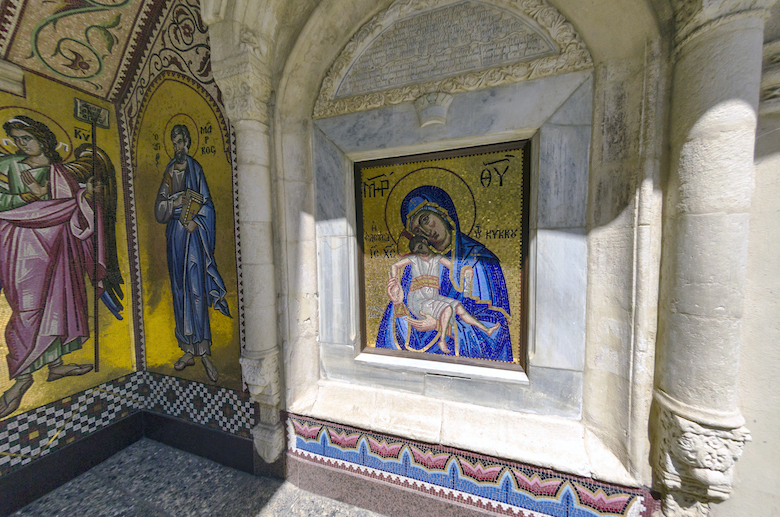
What does it mean in our context to “take up one’s cross”? And how is it something life-giving, in the sense that we lose our life in order to find it—as Jesus expressed paradoxically? The story in last Sunday’s lectionary, which contains these phrases, gives us a glimpse into the late stage of Jesus’ ministry when he sees what it is all coming to.
Even people who are not followers of Jesus, or not Christians, often acknowledge that Jesus was a spiritual genius, even a healer. He had a beautiful, vivid, hopeful way of articulating God’s dream for the world. But throughout most of history, spiritual geniuses and wonder workers, those offering an alternative measure of worth in the world haven’t fared very well with those in power. A confrontation always seems to arise between those who measure things according to a materialistic, this-life-is-all-there-is rubric, or a power rubric, and spiritual masters like Jesus who tell us our ability to see, or to discern value, is quite limited without God’s guidance.
Matthew’s story tells us that Jesus could see the confrontation on up ahead. But Jesus’ followers couldn’t see it; or they wanted Jesus to powerfully stop any confrontation that might harm him. Of course they wanted this! They loved him! They wouldn’t hear of him suffering, or especially, being killed. This seems quite natural.
Yet Jesus uses harsh words to rebuke Peter when he resists this predicted reality. He tells his disciples that not only will he be killed, but they too will have to deny themselves and “take up their cross” to follow him. This wasn’t literal in every case (not all of Jesus’ followers were martyred—in particular, many of the women were apparently spared a violent death). But in a figurative or metaphorical way, we all have to take up our cross. As Jesus says, this is how we gain our life. Because once you know the truth, choosing it is the only way to be alive. When we know God’s dream for the world but we live as if we don’t know, because we don’t want to sacrifice anything, we suffer a kind of spiritual death.

Losing your life to find it
What is truly remarkable is how much Jesus’ disciples apparently did decide to “take up their crosses.” These people who had walked with Jesus and learned from him and loved him as a friend—they were truly changed. Evidently for the first few hundred years after Jesus’ death, Christians lived in community and pooled resources, sharing things amongst themselves. They also lost a lot as they were rejected by different factions of their social circles and as they faced intense persecution within the Roman Empire. Indeed, many of them were killed. What is incredible is how fully Jesus’ followers did actually “take up their cross.”
In our day, it’s sometimes hard to know what it means to do this. In my context, we don’t have outright persecution from our government. We don’t face a threat of violence because of our faith. But I think there are ways in which we’re challenged every day to “lose our life” for the sake of something much grander than ourselves. This might look like serving others rather than living to amass more money and power. Our culture tells us that money and status are all that really matter. Choosing a different road out of faithfulness to God can feel like a small death in this culture. We are also taught by our culture to take revenge on those who oppose us, when Jesus teaches us to love others as we love ourselves, and to forgive. Sometimes forgiveness can feel very hard, almost like a small death, for the ego. But in fact, nursing resentment is what kills us. These are just a couple of examples.
The point is, we too, as Jesus’ followers, are challenged by Jesus to take up our cross. What it means in my case, what it means in your case, will look different than it looked for Peter. But how does it look? What does it mean for you to give up your life in order to find it?
Jesus Loves Women: A Memoir of Body and Spirit; Available HERE














